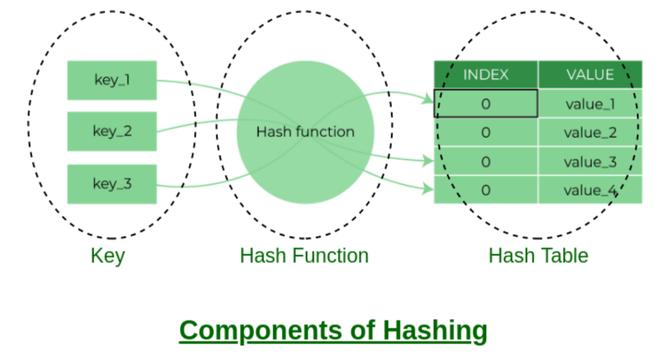As the landscape of software development continues to evolve, hash functions remain a pivotal component, particularly for C developers. Finding reliable implementations can significantly influence performance and security. This article delves into where one can find dependable hash functions online, exploring various types of resources available to developers.
Hash functions serve various essential roles within software systems, from ensuring data integrity to facilitating rapid data retrieval in hash tables. Therefore, it is imperative for developers to select reliable functions that meet their specific requirements. To aid in this search, we will categorize the resources into several types: open-source repositories, academic papers, documentation sites, community forums, and specialized toolkits.
Open-Source Repositories
One of the most fruitful sources for finding reliable hash functions is open-source repositories. Platforms like GitHub, GitLab, and Bitbucket host a multitude of projects where users can freely share and contribute code. Developers can peruse through repositories either by keyword searches or by exploring trending repositories specifically focused on data structures and hashing algorithms.
When evaluating a repository, consider the following factors: the number of stars or forks, the frequency of commits, and the repository’s active issues. A repository with a robust community is likely to provide reliable implementations and regular updates—two attributes crucial for maintaining security against vulnerabilities. Certain renowned libraries such as OpenSSL and libsodium contain optimized and vetted hash functions appropriate for production use.
Academic Papers
For those inclined toward theoretical underpinnings, academic papers provide a wealth of information on hash functions. Websites like arXiv.org and Google Scholar facilitate access to extensive research studies that critically analyze the effectiveness of various hash algorithms. By reviewing these papers, developers can gain insights into newly proposed algorithms and their performance benchmarks.
While these resources may require a more substantial time investment to decipher complex methodologies, the knowledge acquired can lead to significant advancements in a developer’s understanding of cryptographic principles. Such understanding is critical when implementing proprietary or unique systems that require customized hashing solutions.
Documentation Sites
Documentation sites are invaluable resources for C developers searching for reliable hash functions. Websites such as cppreference.com and the official GNU documentation provide comprehensive details on standard hash functions available in libraries like the C Standard Library. These sources offer substantial descriptions, usage examples, and performance characteristics that can help developers identify the most suitable functions for their projects.
Some documentation sites also engage in user communities, where feedback and experiences shared by peers can provide additional insights into practical applications and potential pitfalls associated with specific implementations. Great care must be taken to cross-reference these documents with other resources to ensure that the information remains current, as libraries may evolve and deprecate certain functions over time.
Community Forums
Community-driven forums, such as Stack Overflow, Reddit, and specialized C programming groups on social media platforms, enable developers to seek practical advice and recommendations regarding hash functions. Engaging in discussions allows developers to pose questions and glean insights from seasoned experts. Often, exchanges comprise real-world applications of hashing algorithms, revealing strengths and weaknesses not easily discerned through documentation alone.
Moreover, many forums maintain extensive archives of previously answered inquiries. A simple search can yield a plethora of information on specific hash functions, their efficiency in various scenarios, and real-time experiences from other developers. Such communal involvement can enhance the learning curve significantly.
Specialized Toolkits
Last but not least, specialized toolkits are integral to C development when seeking reliable hash functions. Libraries that provide a collection of utility functions often include various hash implementations that are either cryptographic or non-cryptographic in nature. Examples include OpenSSL, Crypto++, and botan. These libraries come replete with extensive functionalities that extend beyond mere hashing—covering encryption, signing, and data encoding. Each of these libraries boasts comprehensive user guides that can streamline the integration process into existing projects.
Furthermore, evaluating the performance benchmarks of these libraries can suffice when deciding which ones to implement. Such analysis aids in identifying the appropriate fit for specific functionalities, as some libraries may be optimized for speed while others prioritize security.
Conclusion
Finding reliable hash functions online for C development is a multifaceted endeavor. Open-source repositories offer practical implementations, while academic papers provide a robust theoretical foundation. Documentation sites confer in-depth explanations, and community forums present anecdotal evidence that may sway decision-making. Finally, specialized toolkits encapsulate myriad functionalities in one package, ensuring ease of integration.
A discerning developer can navigate these avenues effectively, ensuring the selection of hash functions that meet both performance standards and security protocols. Equip yourself with the right knowledge and resources, and integrate reliable hash functions into your development projects seamlessly.








Leave a Comment